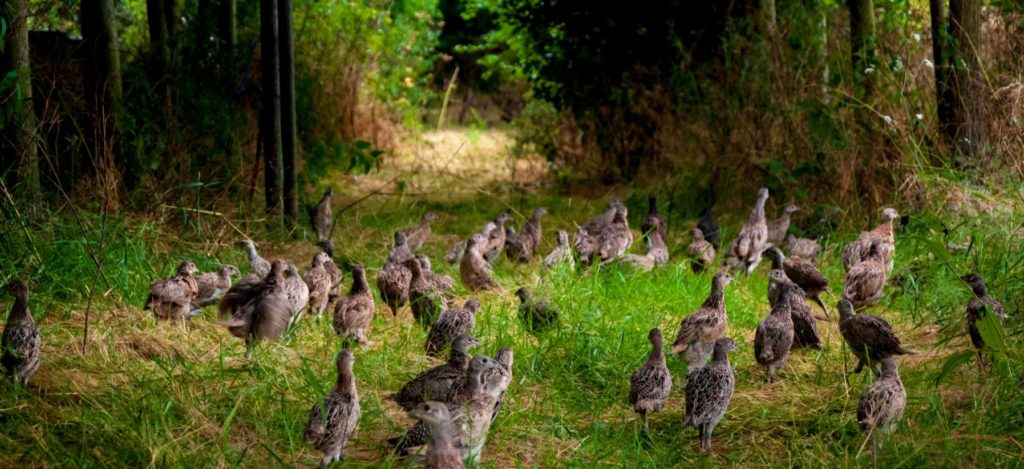Wild Justice secures an historic environmental legal victory
Wild Justice statement on gamebird licensing

Just days away from facing a barrage of legal arguments in court (on 3 and 4 November) DEFRA has agreed to license the release of Pheasants and Red-legged Partridges to control ecological damage to wildlife sites.
Wild Justice mounted a legal challenge to make DEFRA review harmful gamebird impacts and introduce proper protection for wildlife sites and we have got DEFRA to address both. There is more to do to make sure this regulation is made to stick but we have reached the limit of what the legal system can do at this stage.
Wild Justice expects that a proper licensing system, compliant with the Habitats Directive, will require the following actions:
- Adding the Pheasant and Red-legged Partridge to Schedule 9 of the Wildlife and Countryside Act, which contains species which cause ecological, environmental or socio-economic harm (such as Signal Crayfish, Grey Squirrel, Ruddy Duck, Japanese Knotweed). This means that those species can only be released under licence.
- Refusing to license gamebird releases on or within 1km of Natura 2000 sites unless stringent conditions on numbers of birds released are met.
- A ban on the use of lead ammunition on or within 1km of all Natura 2000 sites.
- Further research on impacts of predation by Pheasants on threatened reptiles such as Common Lizards and Adders.
- Further assessment of the influence of gamebird droppings on soil and water chemistry.
- Further monitoring of impacts of gamebird releases on densities of scavenging and predatory birds and mammals.
- Monitoring by Natural England of a large number of sites to ascertain the extent of damage caused by non-native gamebirds.
Wild Justice said:
‘We’re delighted! And we thank our brilliant lawyers at Leigh Day and Matrix Chambers and hundreds of people who contributed to our crowdfunder which allowed us to take this case.
This is an historic environmental victory by the smallest wildlife NGO in the UK against the massed ranks of government lawyers, DEFRA, Natural England and the shooting industry.
Thanks to our legal challenge, the shooting industry faces its largest dose of regulation since a ban on the use of lead ammunition in wildfowling in England in 1999. Pheasants and Red-legged Partridges are now recognised by government as problem species where their numbers are too high and they cause damage to vegetation, soils, invertebrates, reptiles etc.
This move forward was only possible because of the legal protection given to the environment by the EU Habitats Directive (incidentally, largely drafted by Stanley Johnson, father of the Prime Minister). On 1 January, at the end of the Transition Period, the Habitats Directive and other EU legislation will still be relevant to UK environmental protection but each government in the UK could, in theory and in practice, start amending those laws. Society should be vigilant that environmental protection is not whittled away.
There is more to do in making sure this regulation is made to stick but we have reached the limit of what the legal system can do at this stage. We called for review of gamebird impacts and proper protection of wildlife sites and we have got DEFRA to address both’.
Leigh Day solicitor Carol Day said:
‘The decision to establish a licensing regime for the introduction of some 60 million gamebirds a year is a major breakthrough in regulating the impacts of these non-native birds on our most valuable wildlife sites. Our clients will be examining the detail of the proposed scheme very carefully to ensure that it fulfils the Secretary of State’s obligations under the EU Habitats Directive‘.
Media enquiries to mark@markavery.info
Notes:
- Wild Justice is a not-for-profit company set up by Dr Mark Avery, Chris Packham CBE and Dr Ruth Tingay
- Pheasants and Red-legged Partridges are non-native species which are bred in captivity and released in vast numbers (around 60 million a year) for recreational shooting. These birds are omnivores and their huge numbers can damage vegetation, fragile invertebrate communities and soils. Their droppings can affect soil and water chemistry. They may spread diseases to native wildlife. They provide abundant food for some predator and scavengers whose elevated population levels may then affect other species.
- Natura 2000 sites are those designated under the Birds Directive and Habitats Directive, and form some of the most important sites for nature conservation in the UK.
- BASC described the Wild Justice legal challenge as ‘an attack on shooting’, ‘vexatious’ and ‘deeply flawed’ back in January and pledged to fight the legal action.
